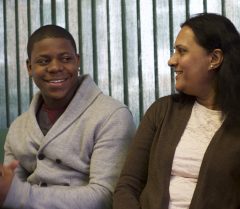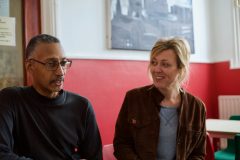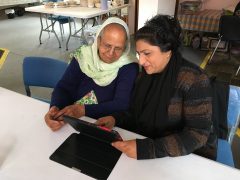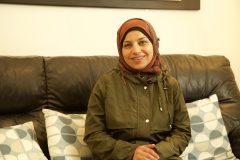In January, the Prime Minister asked the Office for National Statistics to find a way to measure loneliness in the population. To help with this, a Technical Advisory Group was set up. The Advisory Group includes charities, researchers, and government departments who will help identify the best way to do this. Earlier this week, our CEO Tim attended an Advisory Group meeting to hear their progress and represent WaveLength.

Why do we need a measure for loneliness?
At the moment, there are several different ways of measuring loneliness. Different organisations – including WaveLength – use different ones, which means that it isn’t easy to compare what we find. The ONS is looking for the best measure for loneliness so that we can all put together our findings. And by measuring loneliness in the population as a whole, the ONS can give us a better understanding of loneliness across the country. This will help us to recognise triggers for loneliness, geographical loneliness ‘hotspots’, and who within our communities are most likely to be at risk.

Why is WaveLength involved?
WaveLength is very happy to be part of the Advisory Group. We have been fighting loneliness in the UK for almost 80 years, making us one of the oldest loneliness charities. And over the past 3 years we have been doing extensive research into how technology can help beat loneliness. Finally, we are the only charity advocating the way that TV, radio and the Internet reduce loneliness and bring people together.

We at WaveLength know there is no substitute for human interaction. The best way to fight loneliness is to bring people together. But we also know it is not possible to have people around all the time. When everyone else is asleep, a radio show or a Skype call with a friend are great ways to keep loneliness away. We hear this every day from our beneficiaries. And when the University of York researched the impact of our work, they confirmed it.
With our experience, we are excited to share our knowledge with other charities and organisations, and learn from them. By working together we can all gain a better understanding of the state of loneliness and how to fight it.

Next steps
We will keep working as usual to help our beneficiaries feel less lonely. And we will continue to measure the impact of our work by surveying our beneficiaries. We also look forward to working more with the Advisory Group, other charities, and tech companies to celebrate the power of technology in fighting loneliness.

